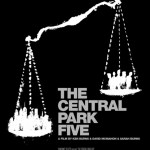On its website, The Innocence Project is described as “a national litigation and public policy organization dedicated to exonerating wrongfully convicted individuals through DNA testing and reforming the criminal justice system to prevent further injustice.” In other words, the non-profit utilizes what limited resources it has to reopen major cases in which DNA evidence was either not available or not originally used.
Once each case is reopened, the defense introduces that evidence to convince the court a very grave error has been made. Over the past 20 years, the Innocence Project has exonerated more than 300 inmates who were wrongly convicted in this country, many of them facing life sentences or more.
300+ overturned convictions. With limited resources. All of the cases reopened by a small team of lawyers who were assisted by criminology students from Cardozo School of Law.
What the fuck?
Perhaps the only reason none of the Central Park Five were exonerated by the Innocence Project was that DNA evidence was not only available at the time of their original trial, it was actually used. What’s more? Despite the fact none of that DNA matched any of the teenage boys in question, the defense charged forward anyway.
There were careers on the line, after all; reputations to be made. And the lives of five boys from East Harlem were considered little more than collateral damage – tiny splinters in the bureaucratic ladder that transformed city detectives into sergeants; criminal lawyers into
As a result, five teenage boys were convicted of a vicious rape – one that gained considerable notoriety given the female victim was a young, attractive finance exec … from the Upper East Side … who’d been attacked in Central Park … by an alleged pack of teens … from the nearby projects … all of whom hailed from minority households.
In the end, these boys served various sentences of 7-13 years in prison … sentences that have since been vacated after the fact, despite no admission of wrongdoing on the part of the NYPD, nor any similar concession of wrongdoing from the City of New York.
While I rarely delve into this type of thing during a film review, it probably bears mentioning that I happened to see The Central Park Five for the first time a little over a month ago, at a small press screening in Midtown Manhattan. There were less than 30 people in the room at the time, four of the Central Park Five among them.
Over the course of two hours, I sat and watched those four boys – all of them now full-grown men – relive that godforsaken event from late April, 1989 – detectives pressuring them, media outlets vilifying them, citizen assholes clamoring for their blood. I watched one of the accused look down into his lap time and again, for abject fear of looking at the screen. I watched another wiping tears from either eye. I sat for several minutes afterward and listened to Yusef Salaam very calmly explain how all five of them simply wanted vindication from the very institutions that had failed them.
And the entire way home, I simply could not seem to shake the fact that it is STILL so unbelievably easy to be in the wrong place at the wrong time in this country, and have your entire world turned upside down for little more than your impoverished station in life. Well, that and the unfortunate – if not all-important – color of your skin.
(The Central Park Five, which was co-directed by Ken Burns, Sarah Burns and David McMahon, opens Friday in limited release around the country.) 
